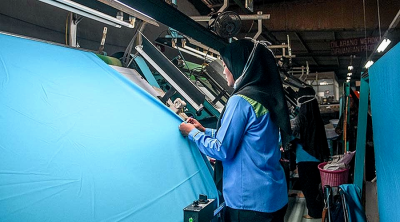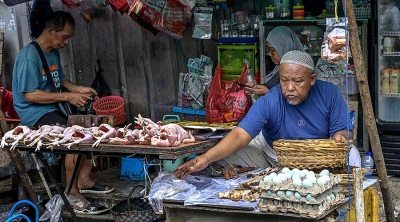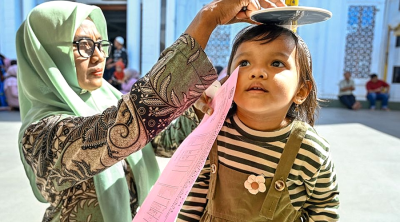When our Asean neighbours are beginning to overtake us, we are still beset by the same old labour shortage problem!
Problems with getting Indonesian workers to Malaysia puts many local businesses highly reliant on migrant workers in a dilemma, seriously hurting the local manufacturing sector.
Additionally, many Malaysian families also have problem getting Indonesian maids.
The Indonesian authorities have frozen the export of workers in all sectors to Malaysia all because of an MoU.
Malaysia signed the MoU with Indonesia back in April, expressly barring the use of the Online Maid System (SMO) to hire maids, using only the One Channel System (OCS) instead.
Nevertheless, the Malaysian immigration department was still using the SMO and the Indonesian authorities felt that we had breached the MoU agreement and decided to momentarily freeze the export of all migrant workers to the country until we undertake to abide by the agreement.
Has Indonesia overreacted? Indeed, the Indonesian authorities are obliged to protect the rights of their citizens, while on our part we are duty-bound to review our modus operandi and the lack of coordination among government departments.
The MoU was signed by the human resources ministers of both countries to standardise the operation governing the entry of foreign nationals.
But unfortunately the incongruous operation of our immigration department has seen the implication spread across many economic sectors in dire need of migrant workforce.
Human resources minister Saravanan Murugan said he would discuss the matter with his home ministry colleague Hamzah Zainudin, although the latter argued that we are adopting an online visa application system that is compatible throughout the world, not merely in Indonesia.
Based on what Hamzah has said, we wonder whether the home ministry was briefed before the MoU was inked.
Both the human resources and home affairs ministries should hammer out a solution as soon as possible to ensure that the country’s manpower needs will not be compromised, as Indonesia is the source of 35% of migrant workers and 70% of foreign maids working in this country.
Federation of Malaysian Manufacturers (FMM) has pointed out that the E&E industry, in particular, requires female workers from Indonesia while most of male Indonesian workers work at construction sites and plantations, rarely in the manufacturing sector.
The freezing of Indonesian workers will deal a severe blow on Malaysia’s burgeoning E&E industry.
Manufacturing sector aside, construction, hospitality and plantation industries will also suffer heavily from labour shortage.

Many local employers lament that the country’s economy is in a very frail state post-pandemic, and yet to return to the pre-pandemic level mainly because of labour shortage that has stalled the operation and expansion plans of many manufacturers.
Many local eateries and mamak stalls are also shortening their operating hours because of manpower crunch.
As a matter of fact, we have already suffered a dearth of Indonesian workers because of the weak local currency making Malaysia less attractive to them, as many employers have reflected.
Many who have managed to pick up a skill or two after working here for some time would rather look for better-paying jobs in Indonesia or elsewhere.
Despite our immigration policy and lack of wage competitiveness, many local employers prefer to hire Indonesian workers due to their performance in construction industry.
Owing to manpower shortage, factory orders cannot be delivered on time, and with shrinking output, our exports will be affected and we may have to increase our imports. Coupled with other external factors such as the war between Russia and Ukraine disrupting global supply chains and sending material prices skyrocketing, the severe global inflation will further impact the normal operation of Malaysian manufacturers.
At this moment the country’s SMEs require around 2.5 million foreign workers. Prior to that, some two million returned to their countries during the virus lockdowns, although not all were from Indonesia.
We now have migrant workers from 15 countries, and the cabinet has agreed to issue work permits to 5,000 foreigners to address the manpower shortage issue.
This means we may not need to wholly depend on Indonesia for the workers as we have other alternatives.
But the thing is, do these workers meet the requirements of our employers? Are they skilled enough to be engaged in more professional positions?
Meanwhile, the human resources ministry says Bangladesh high commission has completed the verification procedures of some 2,000 workers for hiring by 15 local companies.
Manpower shortage is no longer a new issue in this country, and over-dependence on migrant workforce reflects our intrinsic weakness in industrial transformation (including automation to boost productivity and competitiveness).
Having said that, it looks like we will continue to need to rely on foreign workers in much of our economy for the time being.
It indeed takes time for Malaysian companies to transform, but the thing is, despite the fact we have been facing the same dilemma year in and and year out, we seem to have made very little progress, if any at all.
When our Asean neighbours are beginning to overtake us, we are still beset by the same old labour shortage problem!
It is time for the government to draw up a comprehensive industrial transformation masterplan and provide the necessary assistance and support to local companies to boost the country’s international competitiveness.
Over-dependence on migrant workers will not take us anywhere!
ADVERTISEMENT
ADVERTISEMENT








































